Africa
Drone strikes target oil fields in Iraq’s Kurdish region
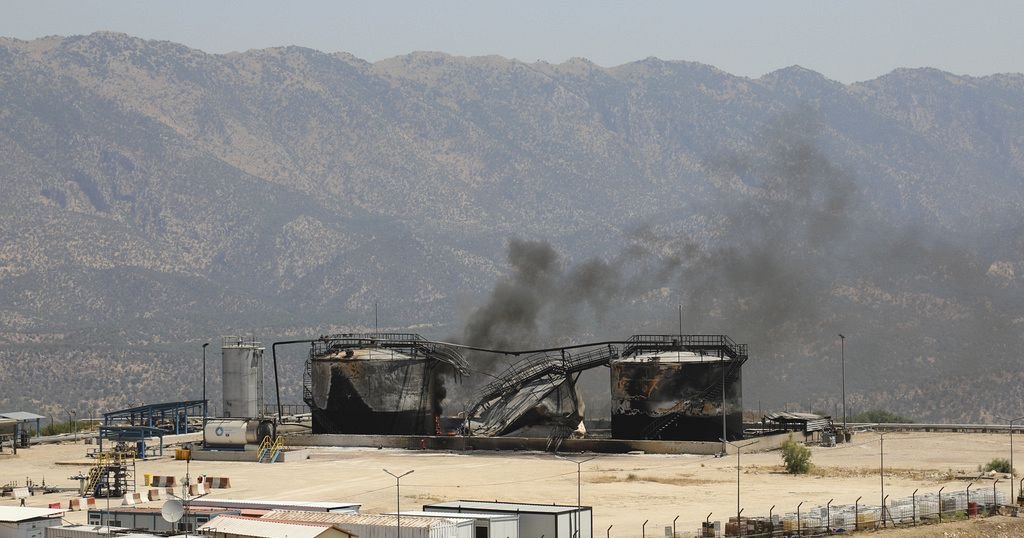
Smoke was still rising Thursday from an oil field in Iraq’s Kurdish region, days after a drone strike hit the site.
The Sarang field in Dohuk province, operated by U.S.-based HKN Energy, was attacked on Tuesday—just as the company signed a new investment deal with the Iraqi government.
It was one of several recent drone strikes on oil infrastructure in northern Iraq.
On Wednesday, drones also targeted fields in Zakho and Baadre, causing damage but no reported injuries.
The Kurdish region’s Ministry of Natural Resources confirmed the Sarang explosion was caused by a drone, following a similar strike Monday on the Khurmala field in Irbil.
No group has claimed responsibility, but the attacks have heightened tensions between Baghdad and Kurdish authorities, raising concerns about the region’s energy security.
Africa
Voter turnout in Togo’s municipal elections overall low
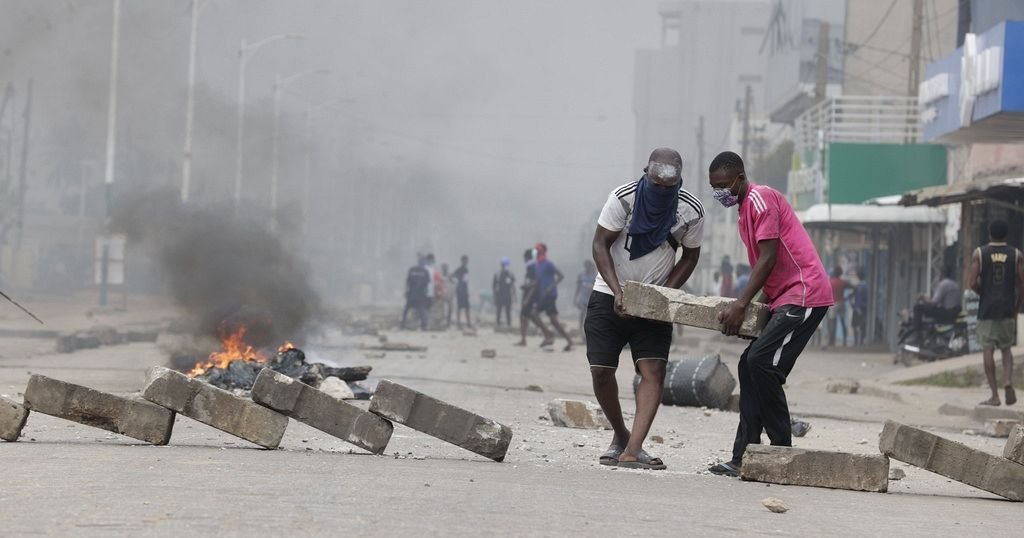
Togolese voters went to the polls Thursday for municipal elections that were seen as a test for leader Faure Gnassingbé, who has faced rare and deadly protests recently, following a constitutional reform that could effectively keep him in power indefinitely.
Polling stations were largely deserted in Togo’s capital Lomé, reflecting widespread voter apathy and fear following the crackdown on anti-government protests that left several people dead in June.
Gnassingbé, who has ruled since 2005 after the death of his father and predecessor as president, Gnassingbé Eyadéma, was sworn in in May as president of the Council of Ministers.
The powerful role has no official term limits and he is eligible to be re-elected by Parliament indefinitely.
Diaspora-based social media influencers and civil society groups had called for a boycott of the municipal elections, the first national vote organized since the constitutional reform. They argued that the current electoral system lacks credibility and that the recent repression has silenced dissenting voices.
Police and military patrols were stationed at major intersections throughout Lomé, reinforcing a heavy security presence that many residents said contributed to the atmosphere of unease.
“The participation in the election is not good,” said Sémon Aboudou, standing outside a nearly empty voting center in Bè, a neighborhood considered a stronghold of the opposition. “Even in 2019, there was more enthusiasm,” he added.
“People are afraid — afraid of being attacked by protesters for legitimizing these elections, or afraid of being dispersed by security forces,” said Edem Adjaklo, a voter in the Gakli neighborhood.
Africa
White House confirms Trump diagnosed with common vascular condition
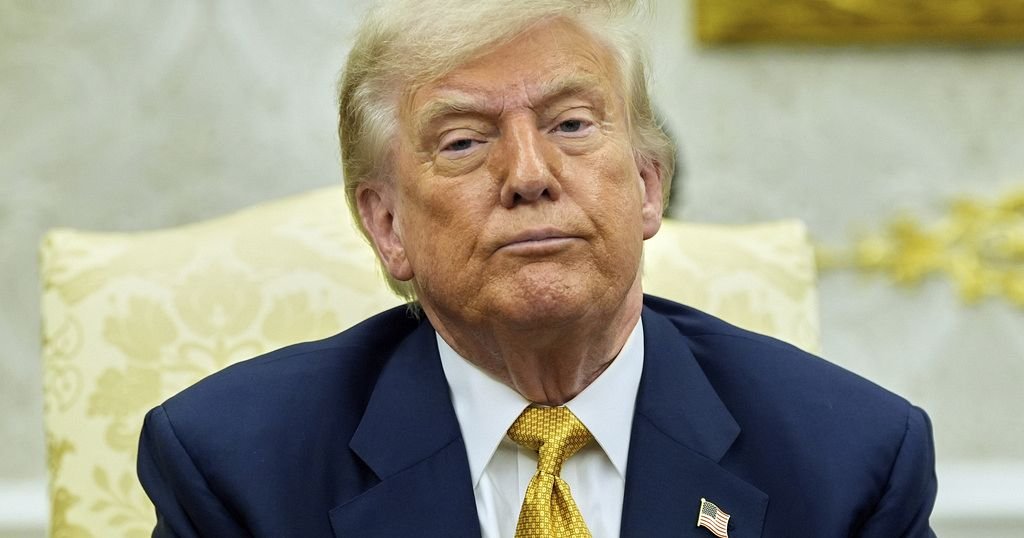
The White House confirmed Thursday that former President Donald Trump has been diagnosed with chronic venous insufficiency, a common vascular condition often seen in older adults. The announcement followed concerns raised after Trump was seen with mild swelling in his lower legs and bruising on his hand.
White House Press Secretary Karoline Leavitt said the condition was discovered during a recent medical checkup.
“This is consistent with minor soft tissue irritation from frequent handshaking and the use of aspirin,” Leavitt noted, adding that the medication is part of Trump’s standard cardiovascular prevention regimen.
Chronic venous insufficiency occurs when valves inside the veins — responsible for helping blood flow back to the heart — begin to fail. While the condition can cause swelling and discomfort, experts say it is largely manageable.
Dr. Andrea Obi, a vascular surgeon at the University of Michigan, explained:
“The causes really are multifactorial… It is more common as we age. Treatment tends to be compression stockings, walking, and in some cases, minimally invasive procedures to close off malfunctioning veins. Overall, it’s a very common and benign diagnosis.”
The disclosure is notable, as Trump has historically kept much of his health information private. The White House has not released further details on his current treatment plan, but officials emphasized the condition poses no serious health threat.
Africa
“Enough Is Enough”: Liberians protest for justice, jobs, and accountability

Hundreds of Liberians flooded the streets of the capital on Thursday, chanting “enough is enough” and demanding accountability from President Joseph Boakai’s government. The demonstration, led by opposition figure Mulbah Morlu, marks the most visible protest since Boakai took office last year, promising reforms and better living conditions.
The protesters carried signs and voiced frustrations over unmet campaign promises, job losses, and the government’s failure to establish a long-promised war crimes court.
“I am very angry. This is why I am in the street today,” said Victoria Roberts, a local businesswoman.
“I am in the street to remind my government of their past promises that they made to we, the Liberian people. How can you say that you came to better the lives of the people, but then you came and took people from jobs? Is that what you call betterment?”
One of the protest’s central demands is justice for victims of Liberia’s brutal civil wars. Protesters are calling for the creation of a war crimes tribunal to prosecute those responsible for atrocities committed between 1989 and 2003.
“We the motorcyclists, we want a war crimes court,” said Dougis Smith, an opposition supporter.
“The war crimes court should not be for Prince Johnson alone. ‘General Butt Naked’ needs to go to the war crimes court too.”
There is growing frustration that figures widely believed to have committed war crimes remain free or even active in political life.
Musu Dennis, another demonstrator, criticized President Boakai’s leadership so far, saying Liberians expected more from a man with decades of public service.
“Liberians voted for Joseph Boakai because he has 40 years experience. So he should start to use that 40 years experience for the Liberian people, not for him to come and put tension on the Liberian people. We are suffering. Let Joseph Boakai do the right thing.”
Protesters also denounced what they described as politically motivated firings and called for the restoration of the rule of law. The crowd, largely peaceful, was making its way toward the presidential palace to deliver a formal petition.
While no violence was reported, Monrovia’s usually bustling streets were quieter than normal, as many residents opted to stay home, fearing possible unrest.
President Boakai’s office has yet to respond publicly to the protest or its demands.
-

 Lifestyle4 days ago
Lifestyle4 days agoA rap festival near the Arctic Ocean delights crowds under the midnight sun
-
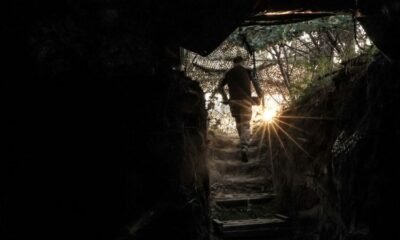
 Europe3 days ago
Europe3 days agoTrump’s 50-day shift on Ukraine is a big deal — but probably not for Putin
-

 Europe5 days ago
Europe5 days agoCole Palmer leads Chelsea to dominant victory over PSG to win FIFA Club World Cup
-

 Lifestyle5 days ago
Lifestyle5 days agoLove Island sparks debate about race and dating among Black women
-

 Lifestyle3 days ago
Lifestyle3 days agoRoman era mosaic panel with erotic theme that was stolen during World War II returns to Pompeii
-

 Asia3 days ago
Asia3 days agoThai police arrest woman who allegedly seduced and blackmailed Buddhist monks
-
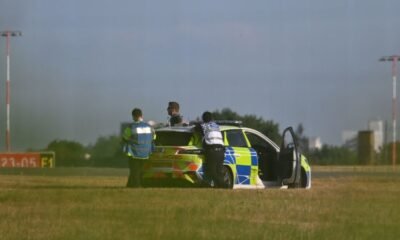
 Europe5 days ago
Europe5 days agoSmall plane crashes at London Southend Airport
-
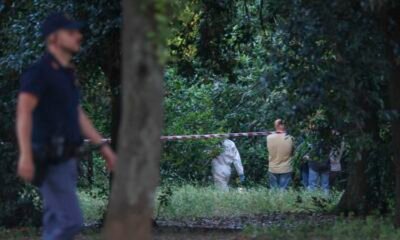
 Europe3 days ago
Europe3 days agoAmerican accused in murders of mother and baby appears before Italian judge after extradition




